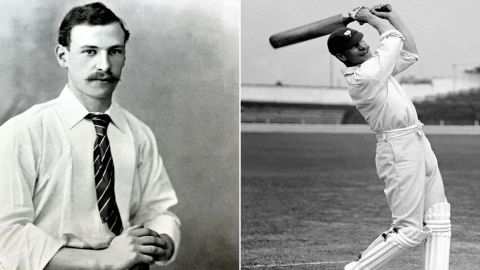The successful captain of the England cricket team, at whom a revolutionary girl fired 5 bullets in Calcutta
Cricket News Desk. The Ashes begins at Edgbaston and Jack Crawley bowls the first ball of the Test and the series. His score in the first session was 61 – the first time a right-handed batsman had scored 61 or more in the first session since the Oval Test in 1899, when he bowled his debut in the Ashes in England. Then this record was made by Stanley Jackson. After this, when Joe Root completed 100 runs, his name also came into discussion in England's 100 run count. Actually, the introduction of Stanley Jackson is that he played 20 Tests for England between 1893 and 1905 – 1415 runs, 5 centuries, 48.79 average. All these Tests were played against Australia in England.
Captained in 5 Test matches during the Ashes 1905 – won 2 Tests but won all 5 tosses. Scored 492 runs at an average of 70 in that series – 144* at Leeds, 113* at Manchester, 82* at Nottingham and 76 and 31 at The Oval. Also took 13 wickets at an average of 15.46. He topped both the teams in bowling and batting averages. Another interesting thing about this series is that both the captains Stanley Jackson (England) and Joe Darling (Australia) had the same birthday and this is the only pair of captains to achieve such an amazing record.
Along with this amazing record, he has a special connection with India. What he contributed not only to Ranji cricket career is another story. While researching this relationship, I was surprised that Jackson, one of the main stars of the Ashes, was not discussed much. This is a very strange and funny story.
Jackson played his last Test in 1905. He was in the British Army and participated in many battles on the border as an active soldier. After retiring from the army, he joined politics and won election to the House of Commons in a by-election in February 1915. He remained a member of Parliament until November 1926 and when he resigned, the British government, taking advantage of his military and political experience, made him the Governor of Bengal and sent him to India in 1927. These were the years when India's freedom struggle was in full swing and the pressure on the British to leave India was increasing. It is not that he was merely engaged in suppressing this movement – he is widely remembered for helping start the Malda District Central Co-operative Bank Limited in Malda district of Bengal to promote the co-operative movement. .
When he was in India in this role, a very special incident happened. It was 6 February 1932 and he had come to attend the convocation of Calcutta University as a special guest. While he was giving a speech there, a student named Bina Das fired five bullets at him from a pistol from close range. Partly the motive was poor and partly Jackson's military training came in handy and he survived. Despite this he had the courage not to walk away – he stood up smiling and resumed his speech. Some reports state that while he was presenting degrees to a new batch of graduates, a young woman fired two shots at him from a revolver. Meanwhile, Vice Chancellor Hasan Suhrawardy caught the girl but by then she managed to fire three more rounds. One of these bullets, unfortunately, hit a senior Bengali professor. Luckily the professor also survived.


Comments are closed.